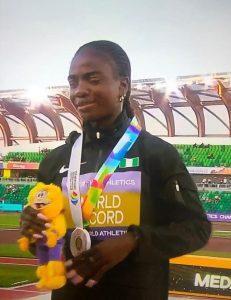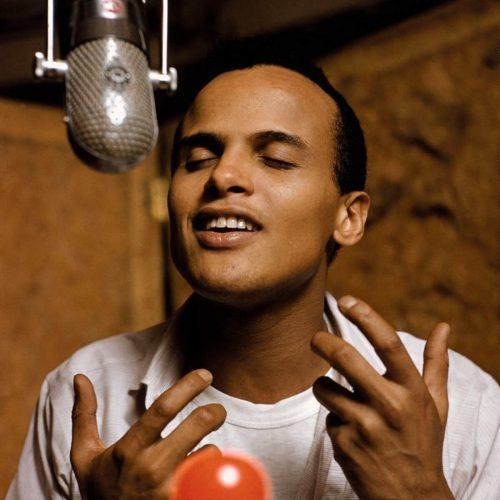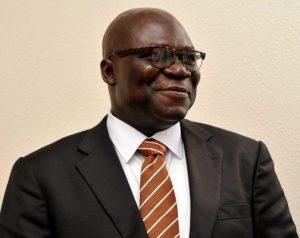Long ago, I read the story of a young boy whose mum gave two 10 kobo coins on a Sunday morning. “This 10 kobo is for offering. The other one is for sweets after service,” the mum instructed him. The boy kept the coins in his breast pocket. On his way to church, one of the coins fell out of his pocket as he jumped over a ditch. The boy shook his head and said: “Dear God, there goes your 10 kobo.” Sense won’t kill him! That is the selfishness always at play whenever the Nigerian economy is in a bad state: the little resources left are for the comfort of our leaders and the brunt of the crunch is to be borne only by the people. It always happens. Nothing ever changes in our dearly beloved country.
Nigerians have been going through hell in recent years and things could only get worse with the removal of petrol subsidy and the official devaluation of the naira. While these painful policies are inevitable — the truth is that we were living a lie and had refused to make necessary adjustments for too long — the message of “sacrifice” would have been more appealing if our leaders were, for Pete’s sake, practising what they preach. So far, I have not seen any measure or behaviour under President Bola Tinubu to show that the message of “sacrifice” is for all. It is lowly Nigerians that always have to “sacrifice” to keep the champagne flowing for the leaders in their yachts and jets.
Where do I start from? Senator Sunday Steve Karimi, the senator representing Kogi West, was on TV some weeks ago trying to justify the decision of the National Assembly to buy “committee cars”, each reportedly valued at N160 million. For those who may not know: before the introduction of the monetisation policy of the federal government in 2003 or so, every member of the National Assembly was given a new official car. However, with monetisation, the cost of a car is now calculated and paid, along with other allowances such as wardrobe and medical, on a pro-rata basis to the lawmakers. But they still go on buying “committee cars” to help them do “oversight” work.
If they truly need “committee cars”, why buy for every member? Why can’t they buy pool cars as their own “sacrifice”? Of course, they are having their egg and eating it at the same time. And you know what? Government assets are depreciated at 25 percent per year. By the fourth year, it has zero value. The committee cars will end up as personal assets at zero price. Sense won’t kill these people! That may be why Karimi said foreign SUVs are the ones made for Nigerian roads. “If I go home once to my senatorial district, I come back spending a lot on my vehicles because our roads are bad,” he said as per the suggestion that the lawmakers should kindly buy SUVs assembled in Nigeria.
Karimi was telling the truth. By the way, he is my senator. In fact, between 2011 and 2019, he was also the member representing my Yagba East/Yagba West/Mopamuro constituency in the House of Reps. By and large, he has been travelling between Abuja and Kogi West in SUVs since 2011. He knows the meaning of bad roads. The last time I travelled to my village to bury my grandmother, the roads were so, so horrible. As you go past Aiyetoro Gbedde on your way from Kabba, the rest is torture, from Mopa through Isanlu to Egbe, all in Kogi state, and then deep into Kwara. But unlike Karimi, most people don’t have Prados to help them through the nightmare. Such a lucky chap.
Karimi’s misadventure on Channels TV explains many things about the mindset of most of those ruling over us — and this is not limited to legislators. It includes the big guys in the executive and the judicial arms of government. For one, these people don’t understand why they are in office. When the roads are bad, they do not think it is their job, one way or the other, to get them fixed. Instead, they go and buy SUVs so that they can successfully enter the potholes and come out in flying colours. When there is insecurity, they travel under the protection of police, NSCDC and military officers. That is their understanding of why they are in power: to feather their own nests without let or hindrance.
Two, these guys — again, I mean the guys in power — are deaf and blind, as it were. At a time Nigerians are complaining about the price of petrol, what these guys are thinking about is the price of SUV. If these guys are really in touch with the people as they always claim, they will think less about personal comfort and more about the rising cost of living for the ordinary Nigerian who does not have access to the treasury, who does not sit on committees, who does not award contracts and who does not get “oversight” alerts. There is an almighty disconnect between those in power and the people on the streets. Not that it started today, but there is just no let-up despite our cries.
Three, Karimi made a Freudian slip and ended up exposing the mentality of many public officers. “Somebody that is a minister has more than three Land Cruisers, Prado, and other vehicles, and you are not asking them questions. Why us?” he asked. In truth, the competition in government is usually about “my Mercedes is bigger than yours”. Ministers and legislators should be competing on the basis of how many roads, schools and hospitals they have used their influence to fix in their constituencies — not how many Land Cruisers, Prados and mansions they have accumulated while in “service” to fatherland. We can never fix Nigeria until we are able to fix this warped mentality.

Finally, Karimi’s interview further exposed the sense of entitlement among those who rule Nigeria. They think Nigeria owes them everything. Last week, Pastor Sam Adeyemi preached a message straight from Matthew 20:25-28 on what Jesus told his disciples about the meaning of leadership: “You know that the rulers in this world lord it over their people, and officials flaunt their authority over those under them. But among you it will be different. Whoever wants to be a leader among you must be your servant, and whoever wants to be first among you must become your slave. For even the Son of Man came not to be served but to serve others and to give his life as a ransom for many.”
In Nigeria, it is the other way round. To be a leader — either in government or private sector — is to be a tin god. Rather than serve, you are to be served. Rather than sacrifice your comfort for the good of the people, you make the people sacrifice for your comfort. That is why anytime there is austerity, as we are currently facing, our leaders will collect every kobo they are entitled to, and then say, like the little boy, “Dear Nigerians, there goes your 10 kobo.” There will be no “cash backing” when it comes to delivering the goods to the people. There will be money to pay for presidential yachts and presidential jets but when it comes to funding education, the budget will start underperforming.
Pastor Adeyemi said you cannot be a good leader in any sphere of life if you do not love the people you are leading. Spot on! I agree wholeheartedly. If you have love, you will have compassion. That is a given. You cannot be a leader in a poverty-ridden society, where poor people are treated like rags at public hospitals, where the children of the poor are dropping out of school because they cannot afford the cost, where people are trekking to office because they cannot afford the transport fare — and your priority will be how to acquire the most expensive toys in town for “committee work” or to travel in chartered flights. No. Your conscience will not allow you to fiddle while Rome burns.
Make no mistakes about it: this is not just an Abuja problem. We don’t even know how many cars the state legislators are buying for “committee work”, or how much allowances they collect every month. We are not really interested in that. We do not know how the state budgets are padded or how the contracts are awarded. We do not know if yachts and jets are also a thing for some of the governors. We do not care that much. Those who control public discourse in Nigeria have fervently framed everything wrong with governance as an Abuja problem or some political structure. Everything starts and ends in Abuja. Unfortunately, that is how we see things and there is nothing we can do about it.
I have been saying this for a while and I accept that many Nigerians will never agree with me: the real division in Nigeria is not north and south, Christian and Muslim, six geo-political zones, 250 ethnic groups, or even APC, PDP and Labour Party. Rather, the real division is into two groups: Group A and Group B, in which Group A is for the elite in power and their associates and Group B is for the “other Nigerians”. Those mismanaging Nigeria and taking advantage of the public treasury do not have ethnic, religious or partisan inhibitions. They are united in their insensitivity and squandermania. I have not seen any legislator from any party or ethnic group come out to reject the SUV bonanza.
On the other hand, those suffering the consequences of the waste and mismanagement are from all ethnic groups, parties, religions and regions. Inflation does not spare people because they are Hausa or Igbo, PDP or APC, northerners or southerners. You see, an egg can sell for N200, garri for N500 per mudu, petrol for N2,000 per litre and diesel for N2,000 per litre. It is none of the business of Group A. They will still eat in excess and waste much. They will still buy more cars and build more houses. They will still go for “summer”. They will always take care of themselves — with the help of the “broke” treasury. The message of sacrifice is for the others: “Dear Group B, there goes your 10 kobo.”
===
AND FOUR OTHER THINGS…
MIGHTY MATAWALLE
Alhaji Bello Matawalle, minister of state for defence, has been under the spotlight over his actions and deeds as Zamfara governor from 2019 to 2023. The state government has published a long list and bundles of pictures of projects that Matawalle fully paid for but were totally abandoned or not executed. One was a N1 billion “catering centre” that is just a pile of blocks. In his response, Matawalle said the exposé is aimed at discrediting him and getting him fired as minister. I would advise Matawalle not to worry about that. With what I have seen and heard so far, I don’t think any appointee should be worried about getting sacked by President Tinubu for corruption. Extravaganza.
SOLIDARITY SICKNESS
Members of the National Labour Congress (NLC) and Trade Union Congress (TUC) on Thursday disrupted flights at the Nnamdi Azikiwe International Airport, Abuja, in solidarity with the NLC president, Comrade Joe Ajeiro, who was assaulted obviously by political thugs or police officers or both in — wait for this — faraway Imo state! The Abuja disruption is the height of irresponsibility. What is the business of other Nigerians with the fight between Ajaero and his state governor, Senator Hope Uzodinma, who was seeking re-election and whom Ajaero apparently doesn’t want to return to office? The excesses of some of these unionists need to be curbed urgently. Rascality.
ISRAEL’S HAMMER
More than a month after war broke out between Israel and Hamas, the Palestinian militant group which also doubles as a political party governing Gaza, there are still no winners. Hamas had launched a surprise attack on Israel on October 7, reportedly killing 1,400 Israelis and taking 200 hostage. Israel typically responded with maximum force and over 10,000 people, mostly civilians, have reportedly died. But one fact remains: nobody is going to win this war. Bombs cannot. Guns cannot. Only common sense will. Israel will have to accept the two-state solution (by accepting Palestinians’ right to have a country) and Hamas have to recognise Israel’s right to exist. Compromise.
FINALLY…
Anytime MultiChoice increases its tariffs, it always attracts more attention than the prices of garri and onions — or any other price hikes in Nigeria. The National Assembly and some unions would threaten to shut down the pay TV company’s operations in Nigeria. Meanwhile, costs of goods and services (particularly those paid for in dollars) have been on the rise for years because of the FX situation. Government fees and levies have been going up. But there seems to be an obsession with MultiChoice which I have never been able to understand. At this rate, the National Assembly may have to amend the constitution in order to declare pay TV as a fundamental human right. Weird.




















